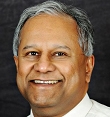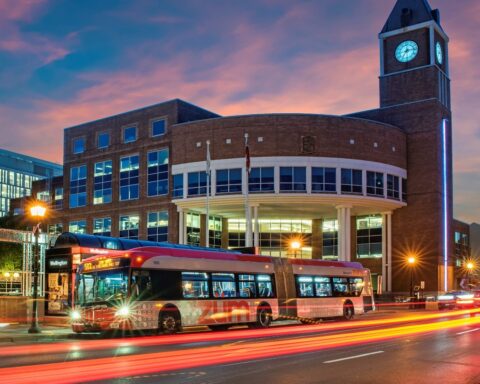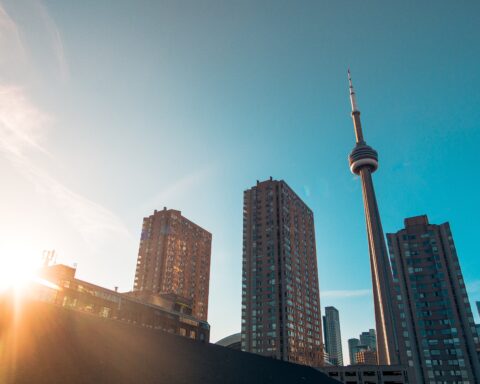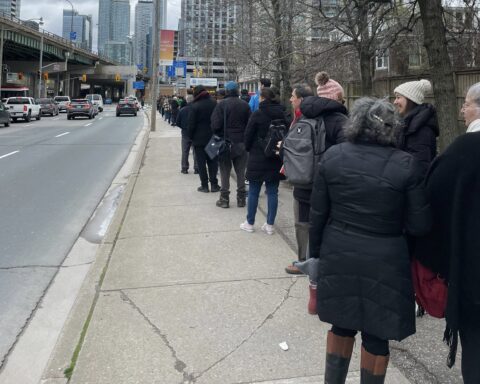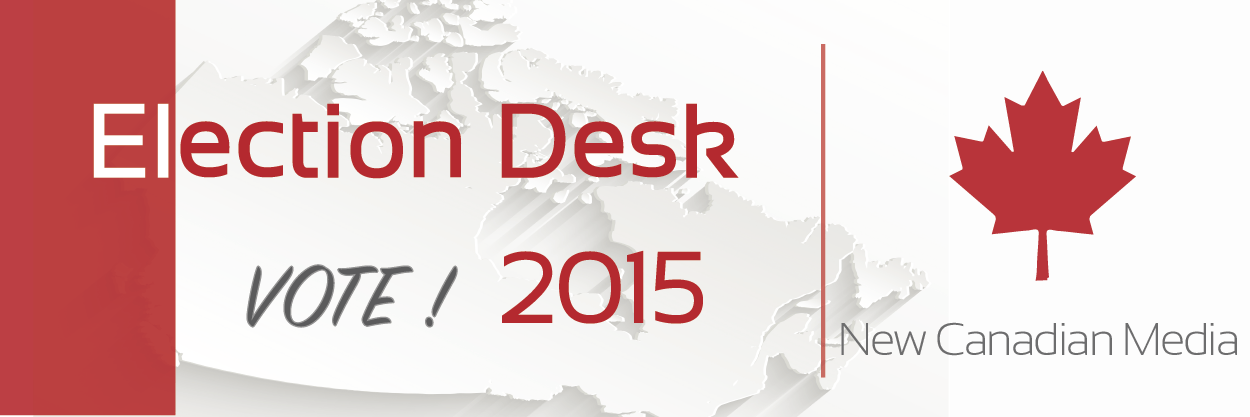
With elections kicking into high gear, who would have thought that identity politics — with immigrants as public enemy number one — would be centre stage in the campaign chaos.
Dog whistle politics are supposed to play out in the shadows and be heard only by their intended audience, but this seems to have been made irrelevant by the power of social media to scour the darkest corners. They have been replaced by what could be called “hunting horn politics” that trumpet intentions loud and clear.
To soften the imagery, many prefer to call them wedge politics.
While the niqab controversy seems to have acquired a life of its own, at least in the media, the antidote to wedge politics has surfaced. Big Tent politics of yore that attempt to tie together differing ideas under one unifying but nebulous banner are back in play. And who but the “natural governing party” of Canada can play it the best.
The Liberal Party made a dazzling display of that prowess in Brampton, Ontario — the Ground Zero of the fabled ethnic vote that may be the deciding factor as to who gets to rule from Ottawa.
It was no coincidence that the Greater Toronto Area (GTA) city was chosen to host what was claimed to be the largest campaign rally ever with over 7,000 people in attendance. An impressive number for Canada, but not for the foreign-born South Asian immigrants who come from more raucous democracies and make up more than half the population of Brampton.
Reclaiming the 905
For years, the city and the other areas that surround Toronto were a Liberal stronghold. It was propped up to a large extent by immigrant voters beholden to former prime minister Pierre Trudeau for policies that made their passage to Canada possible.
What better place to reclaim lost ground than in the “905,” this section of suburbs nicknamed after their shared phone code.
In 2011, the Conservatives swept all 28 seats in the area and won a majority government. This time around, there are 11 new seats to fight for. It’s this sheer volume that makes the 905 a must-win battle ground in the larger war.
What better place to reclaim lost ground than in the “905.”
The war metaphor did come up at the Brampton rally when Liberal leader Justin Trudeau said that together, Canadians have won tougher fights and solved greater problems. “The country that fought like lions in the trenches of WW1 and on the beaches of WW2 is not as easily cowed as Stephen Harper thinks we are,” Trudeau said as he preached his message of inclusivity to the diverse crowd of supporters, young and old.
This allusion to war was the exception. Otherwise, it was a lovefest through and through, with Trudeau and the crowd feeding off each other. The recurring thread throughout was that “a Canadian is a Canadian is a Canadian.”
“Neighbours, not enemies”
Trudeau also tried to reach out to Conservatives by telling the crowd that supporters of the current ruling party “are not our enemies. They’re our neighbours. They want what’s best for their country, just like we do. [. . .] We don’t need to convince them to leave the Conservative party. We just need to show how Stephen Harper’s party has left them.”
Several factors are at work for the Liberals in the 905. Trudeau’s promise to run deficits while spending $125 billion on new infrastructure projects resonates well with the suburban Toronto voters who often get caught in traffic gridlock.
“Stephen Harper just doesn’t see what you’re going through. When you spend a decade in a motorcade, you don’t have to worry about traffic jams. That’s what happens when you’ve been in power too long,” he said.
The other factor that seems to be helping the Liberals in the 905 is that, apart from a few ridings, the NDP presence is not strong on the ground here. Several analyses of the 2011 results indicate that the Liberals did not lose much support among the visible minorities.
The optics couldn’t have been better: one big Canadian family under one big tent.
2011 split vote
What did them in was the inroads made by the NDP that split the left of centre vote, which helped the Conservatives win with less than 35 per cent of the votes.
With the Conservatives distancing themselves from the larger Muslim population, the Liberals are in a good position to attract this demographic’s votes. Of the estimated one million Muslims in Canada, half of them live in the GTA and make up almost eight per cent of the population.
Aware that in at least nine ridings a concerted voting effort by the community could make a difference, both the Liberals and the NDP are courting them hard. “We are in it for the young man whose parents brought him to Mississauga from Lahore,” Trudeau said in a pointed reference to the city in Pakistan, earning loud applause.
Setting aside cynicism for a moment, in a week that saw the last of the leaders’ debates and the niqab question threatening to smother larger election issues, the Liberal rally reflected the spirit of the upcoming Thanksgiving holiday and family togetherness.
As wife Sophie Gregoire gave Trudeau a rousing introduction and trotted out their three young children, the optics couldn’t have been better: one big Canadian family under one big tent.
That the ensemble on stage looked almost presidential did not bother the crowd as it savoured this familiar family image in the rough sea of parliamentary politics. #MonAmour trended after Trudeau’s slip of tongue at the last debate, and that emotion continued to resonate amongst the faithful that evening in Brampton.
Editor’s Note: An earlier version of this analysis mistakenly carried a headline “Trudeau Espouses Family Values at Brampton Rally”. We regret the error.
Ranjit is a Toronto-based writer with interest in Canadian civic affairs, immigration, the environment and motoring. Maytree and Al Jazzera English alumnus.


